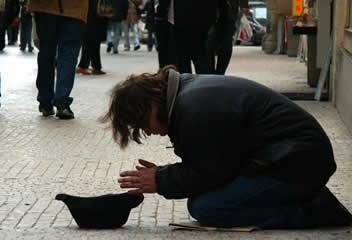It is common to find people who believe that only those who work with a formal contract are entitled to benefits from the National Institute of Social Security (INSS), such as retirement. There are also questions about how informal workers can access retirement later.
Read more: Lifetime review: retirees can have value added to the benefit
see more
'Barbie' movie predicted to boost Mattel profits…
Japanese company imposes time restriction and reaps benefits
Housewives, for example, are part of the group.
In addition, there are also citizens who need to retire because they fell ill, either because of work or extra chores. In the latter case, it is common to find people who were removed due to Repetitive Strain Injury (RSI) and Work-Related Musculoskeletal Disorders (DORT) or disability.
These diseases are often linked to intense and excessive use of the joints, especially the wrists, hands, shoulders, elbows and knees. Mental illnesses – such as depression – also come into play and affect many women. The reasons are diverse. By leaving work behind, they believe they will become destitute.
However, the dream of retirement does not die for housewives! They can start making transfers to the INSS as an optional taxpayer. This means that, even though she is not obliged to contribute, there is the possibility of her paying the contribution on her own to be able to enjoy the benefits later.
In order to retire due to disability, it is necessary to follow certain rules. See which ones:
- Present proof of permanent incapacity in any activity;
- Be in the capacity of insured;
- Have contributed at least 12 months to social security. This may be waived, but only in cases where the subject is seriously ill or had an accident.)
Below is a list of illnesses that may rule out the 12-month contribution period for receiving retirement:
- Blindness;
- Mental alienation;
- Severe heart disease;
- Malignant neoplasm;
- Radiation contamination based on conclusion of specialized medicine;
- ankylosing spondyloarthritis;
- Epilepsy;
- Multiple sclerosis;
- Parkinson's disease;
- Advanced stage of Paget's disease (osteitis deformans);
- Leprosy;
- Severe liver disease;
- Severe nephropathy;
- Irreversible and disabling paralysis;
- Acquired Immunodeficiency Syndrome (AIDS/HIV);
- Active tuberculosis.
To apply for the benefit, it is necessary to apply for the temporary sickness benefit. After the incapacity is proven, the INSS will start transferring the monthly salaries related to the disability.
To schedule the expertise, visit the Meu INSS website or application, then log in with your CPF and password. In the “Services” tab, click on “’Benefits”, then go to “Sickness aid”. Then schedule. Attach your documents and wait for the booking confirmation.
On the day of the inspection, you will need to have:
- Identification document with photo;
- CPF;
- Documents proving payment to the INSS, such as: work card and contribution booklet;
- Medical documents from your treatment, such as: exams, certificates, reports
- Statement signed by the employer dated on the last day worked;
- If necessary, Work Accident Communication (CAT).
Lover of movies and series and everything that involves cinema. An active curious on the networks, always connected to information about the web.

